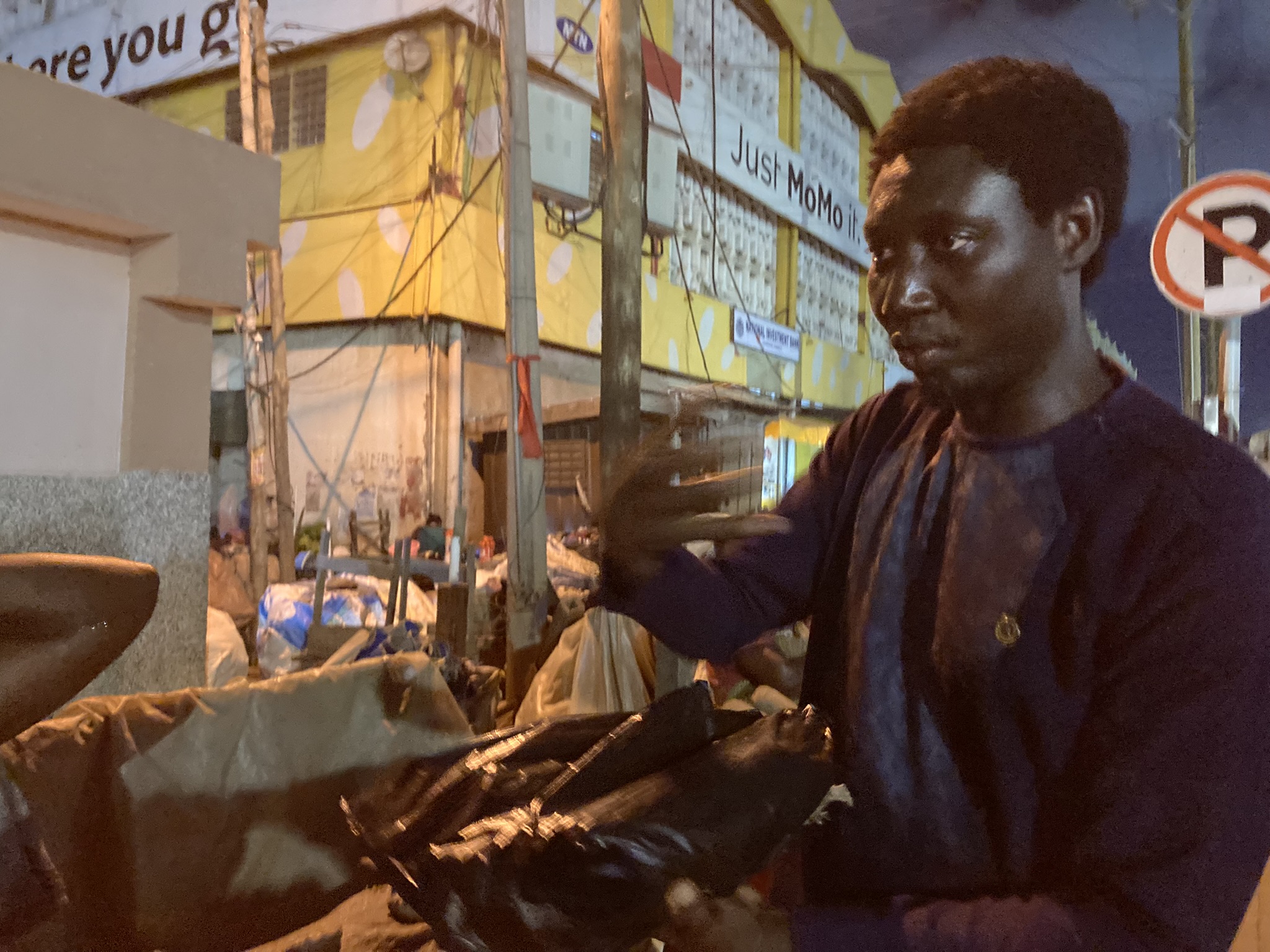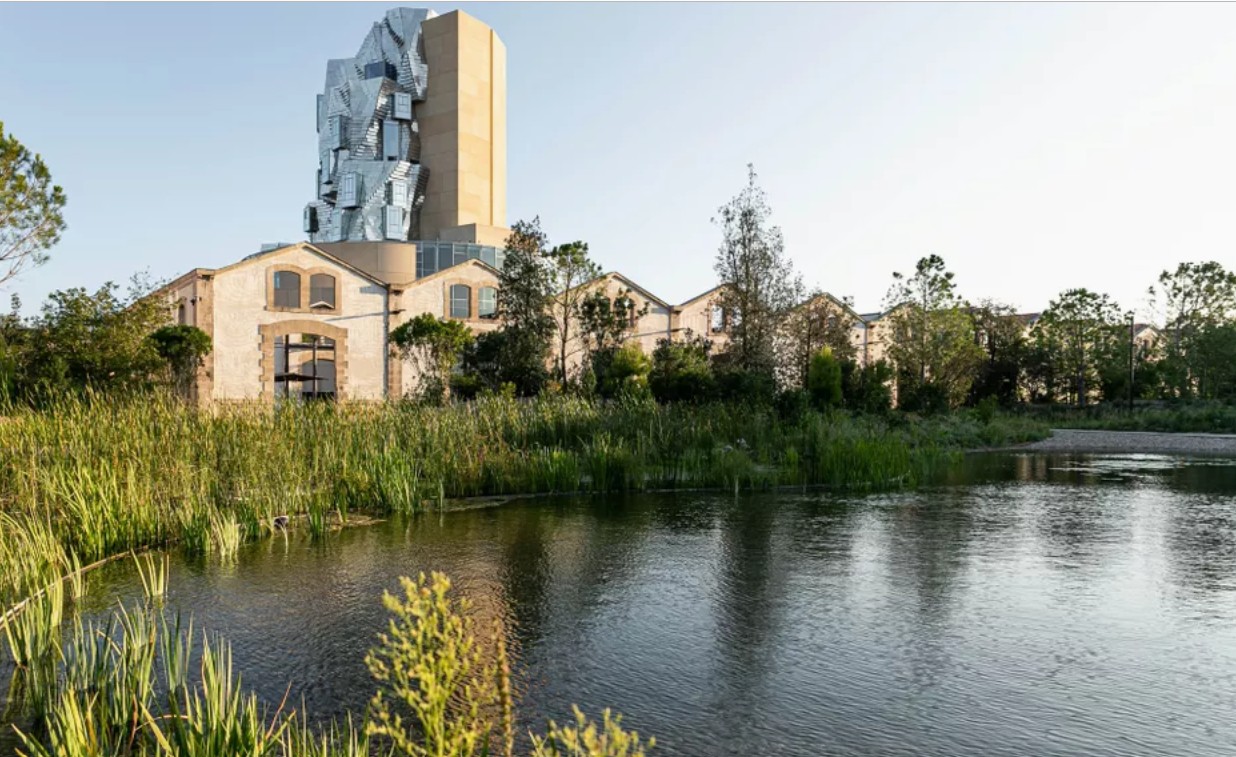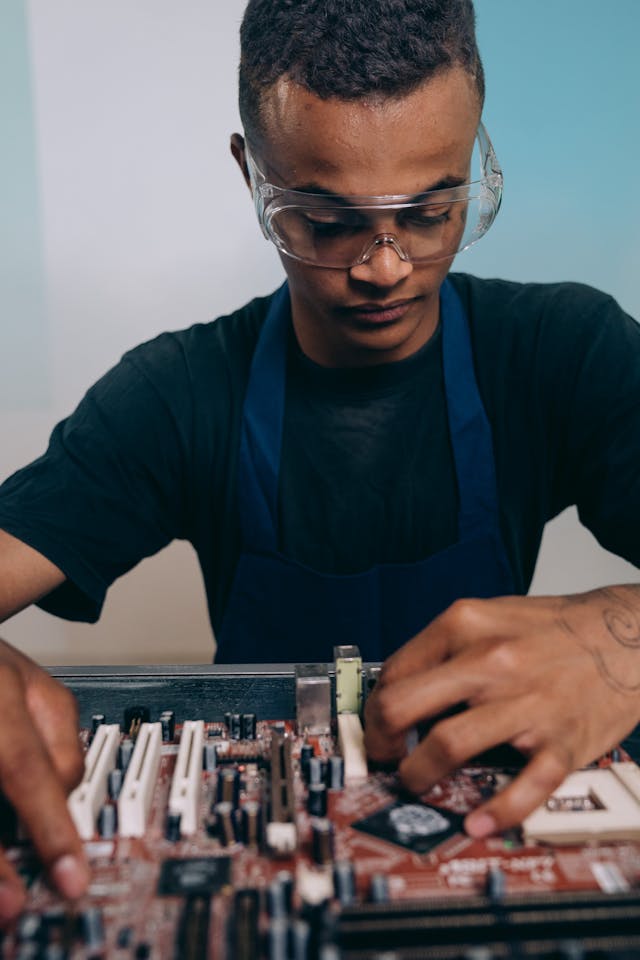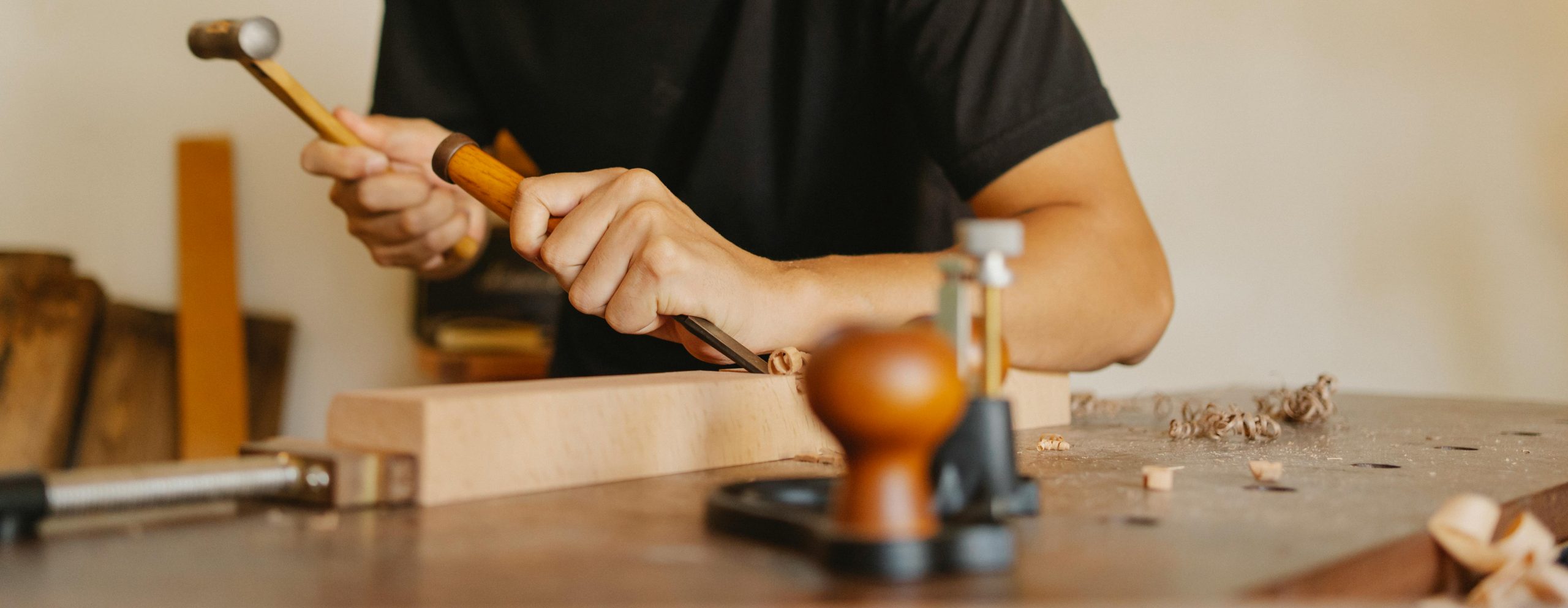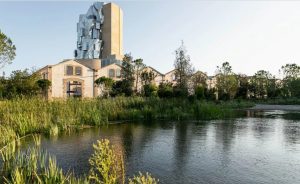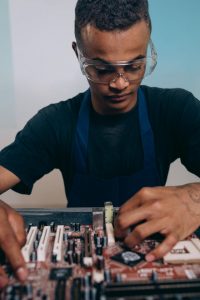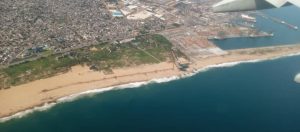Climate action and just transitions : “I prefer to share”- Otoo Emmanuel Addo
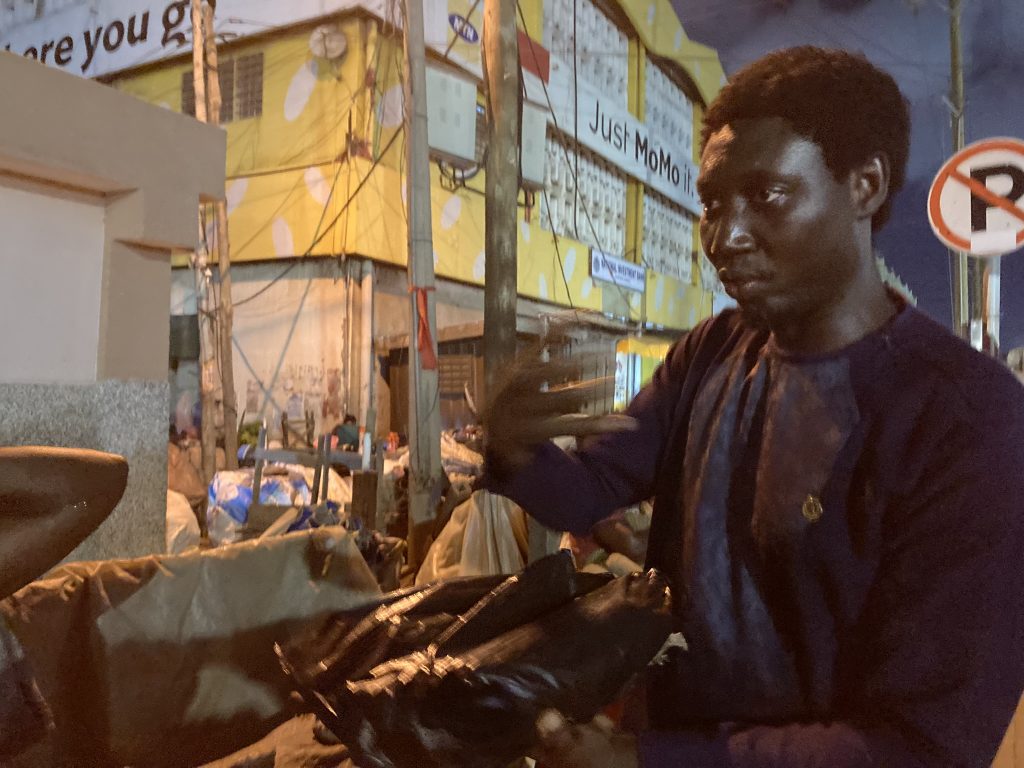
Early November, in Accra, the capital of Ghana, , 40 years old Ghanaian entrepreneur Otoo Emmanuel Addo introduces climate action and just transitions to women in Kaneshie market. Kaneshie Market is a trading center built in the 1970s. It is a night market. But people also work in the morning from 4 am to 6 pm.
Understanding just transitions in Kaneshie Market
Addo is managing Eng-solutions ltd a company based in Kumasi. He was part of a two days event called “dare to share knowledge on just transitions“.
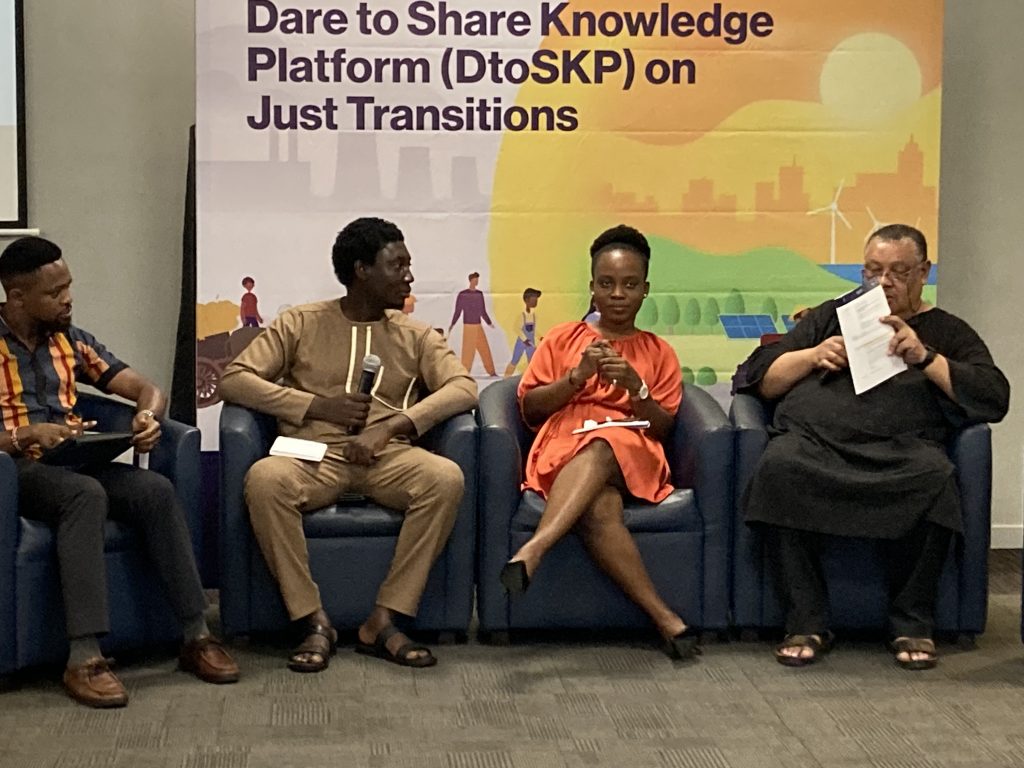
He founds this conference useful. “This conference was quite helpful, as I usually felt alone, trying to solve problems by myself”, he explains. The dare to share knowledge platform on just transitions seeked to help bridge the gap between many stakeholders from Europe and Africa. It aimed also to understand how to reach a fair and sustainable development in the continent. Otoo was part of the experts who shared his experience. After these two days, he then demonstrates how his activities can be understood in Kaneshie Market.
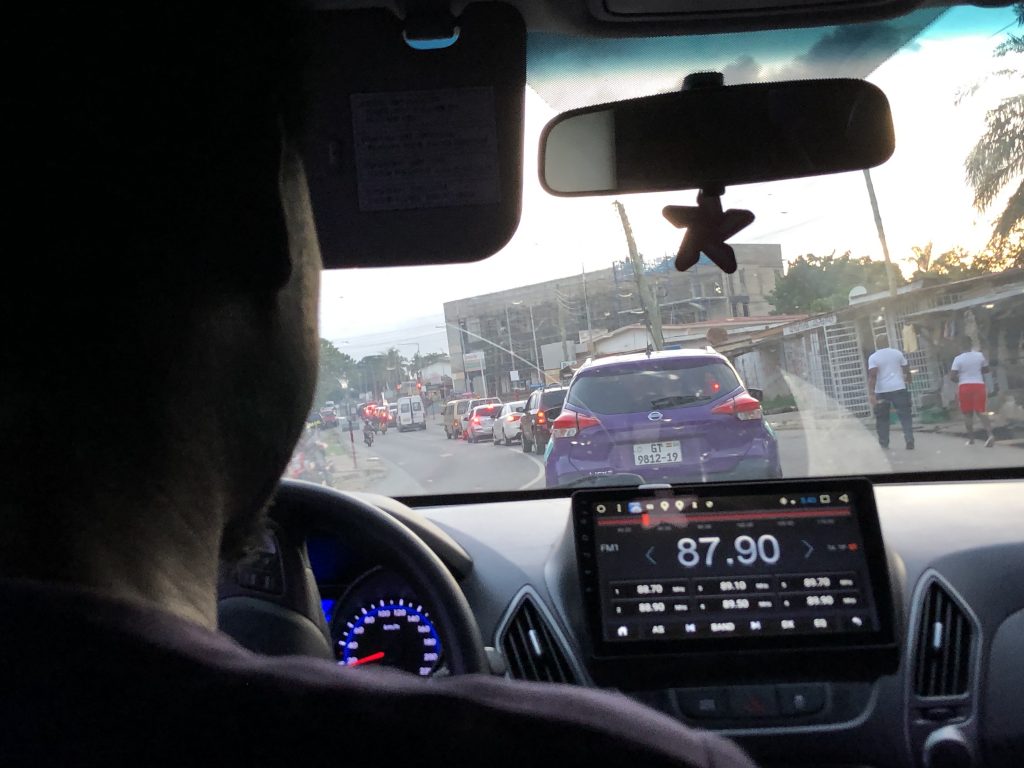
Going to Kaneshi market takes time. Traffic is very dense in the capital of Ghana. Traffic noise is also intense. As time runs, the entrepreneur relates his life. He explains how his family understands what he is doing with organic waste. His family supports his activities at early stage. Since his childhood Otoo has been working. He is the last of 7 . He first repaired flashlights at the age of 5 with the support of his grandfather. Today, he is the CEO of a company with more than 80 employees. But he uses a payment system with technical limitations. Otoo works between formal and informal. He is also the executive director of a solar panel company. He studied science and worked in Germany.
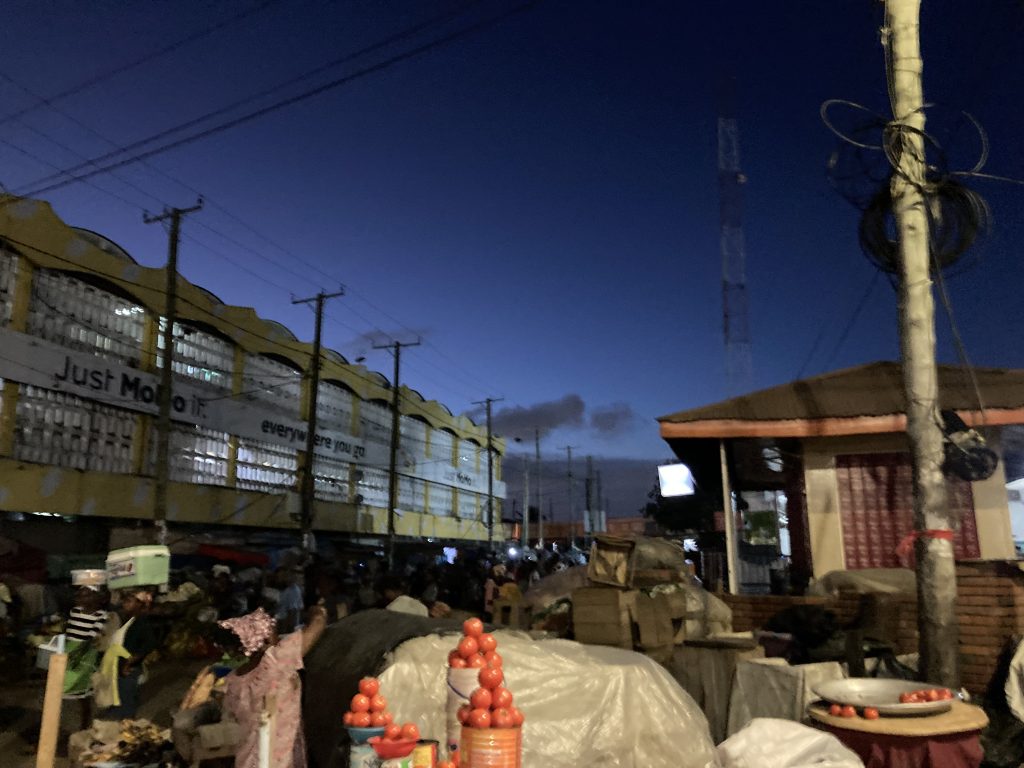
The power of local languages
At Kaneshie Market Otoo speaks with women in Twi. Originally from Kumasi, Ghana’s commercial city, Otoo speaks twi, an Akan dialect from Ghana’s largest ethnic group. There are more than 32 million inhabitants in this country.
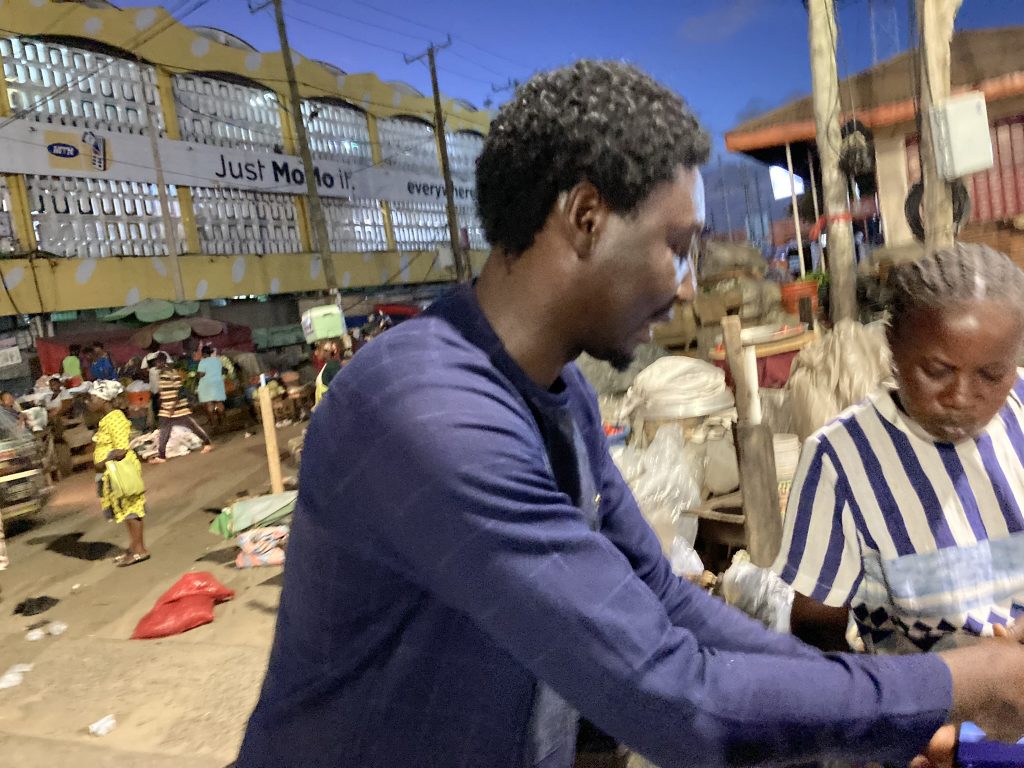
Women in West Africa, according to an OECD report titled « Agriculture, Food and Jobs in West Africa », published in 2018, plays a central role in the food economies of the Sahel and West Africa. They gather 51% of total employment. In rural areas, 75% of women are working in the food economy and in agriculture. In urban areas, off-farm food activities employ 4 women out of 5 women working in the food economy.
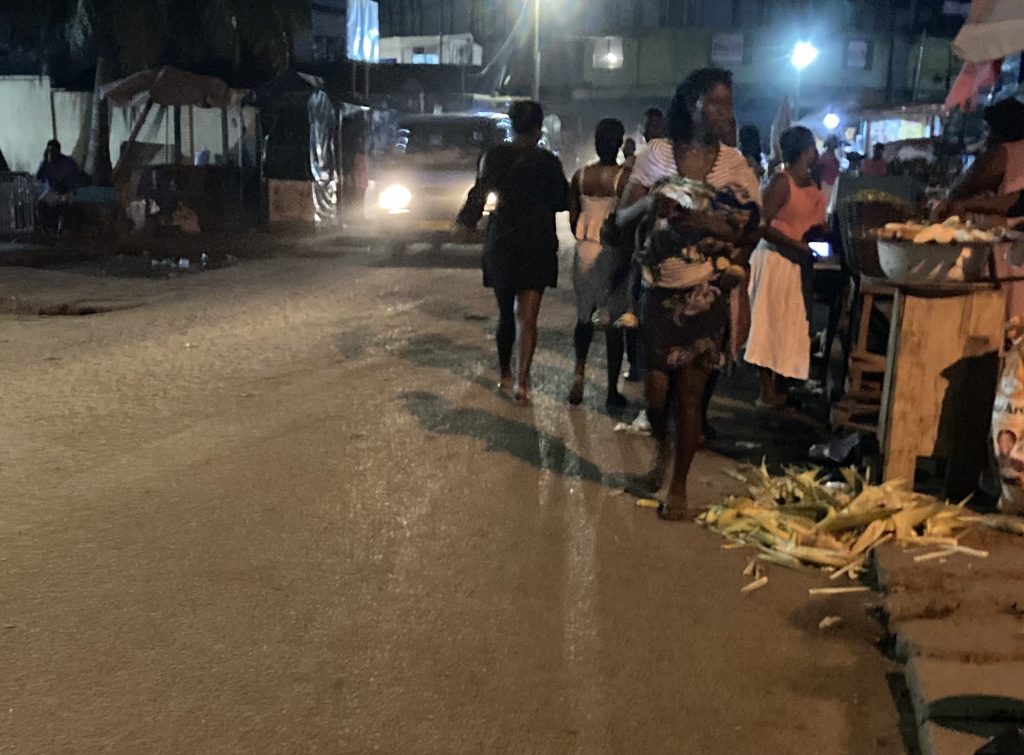
In Kaneshie market, indeed a lot of women are working, selling plantains, yams, tomatoes, coconuts…
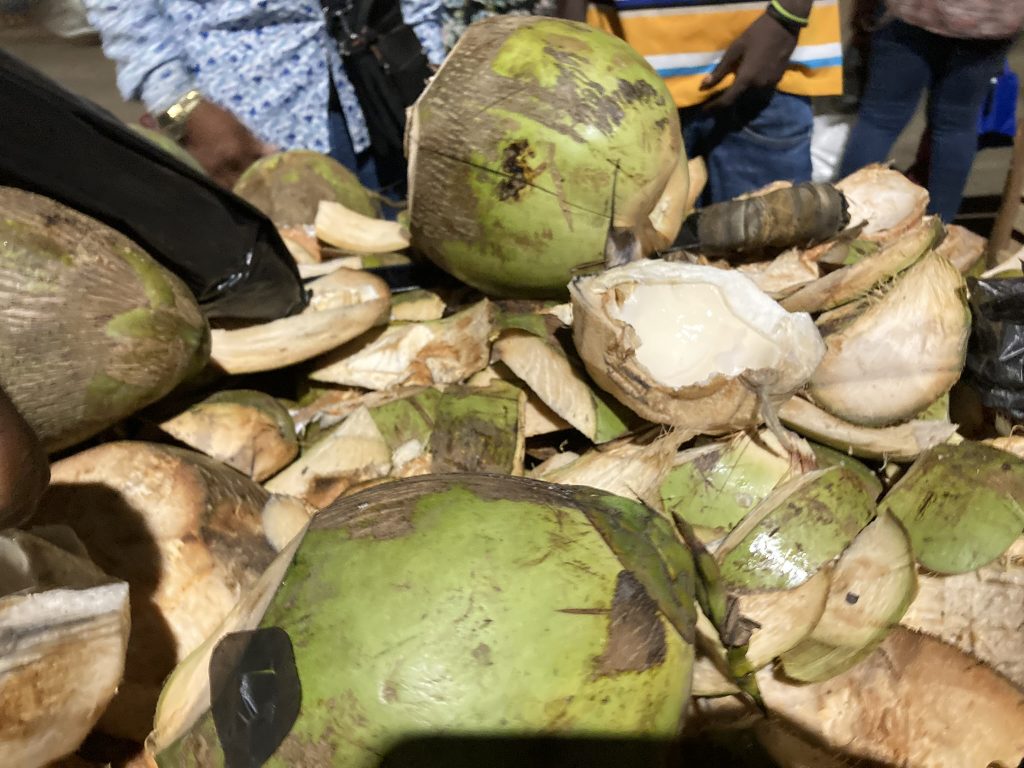
“Plantains should not be in contact with water, otherwise they turn black like these ones,” explains Mama Dorothy, a plantain seller. To preserve them, the saleswoman puts them in a basket. Merchants who buy plantains in large quantities use the waste from these bananas to give to the animals, she underlines. Plantain waste can also be valorized. It has however to be dismantled to a larger public .
According to the book “plantain banana, socio-economic and technical issues”, published in May 2019, plantain banana contributes to food security. Powders from its processing can also be used for biogas production. Ghana, report the authors , Moise Kwa and Ludovic Temple, is one of the 8 main banana-growing countries. The study shows how climate change is affecting the production of plantains. It also describes different types of bananas. There are 150 varieties of banana seedlings. These bananas face climate change differently. They face lack of fertilization, lack of control of pests, fungi, bacteria. As many part of Africa farmers and producers need to be trained.
How Otoo Addo thinks he can help?
Addo is also a multifunctional person. During the discussion with mama Dorothy, he talks about his computer training awareness’s job when he was at university in Ghana. ” I opened an informal school to help people understand excel,” he says. Mama Dorothy’s eldest son studies at university and she pays all his fees,” . She seems to be overwhelmed. Tell him to call me and he will then know what to do”, Addo appeases the plantain seller. He then gives his phone number.
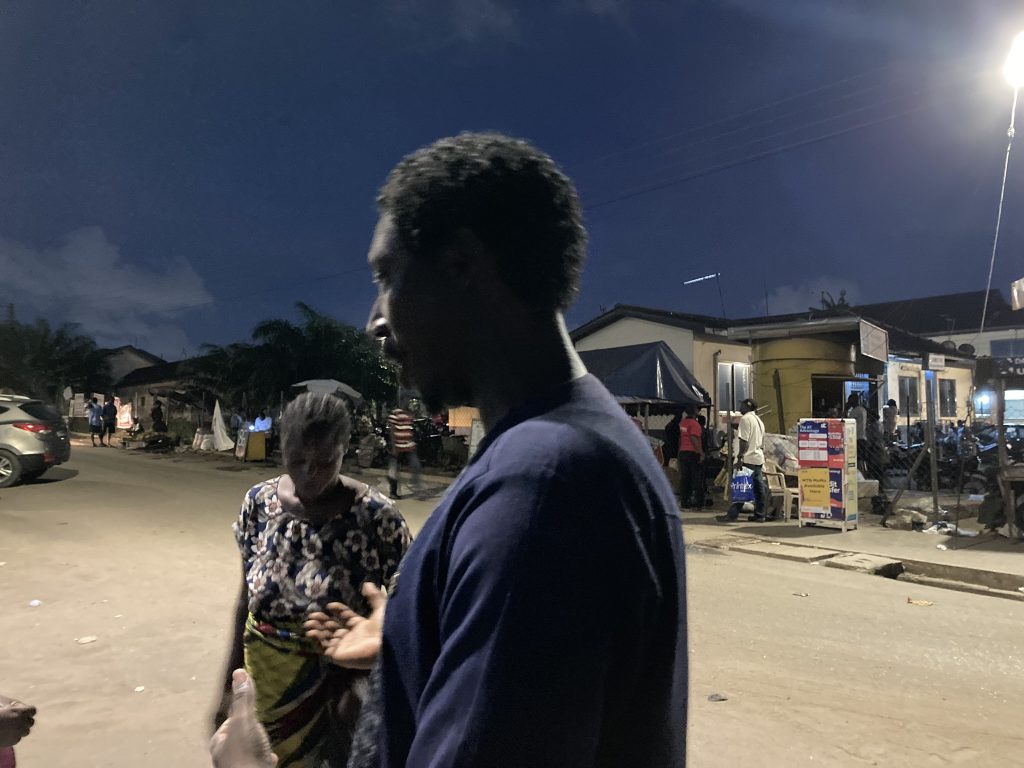
Life is not easy, stresses mama Dorothy. She has 5 children and she hardly afford to pay everything.
“I will help your son to create a small business as I used to do when I was at university,” emphasizes the entrepreneur .
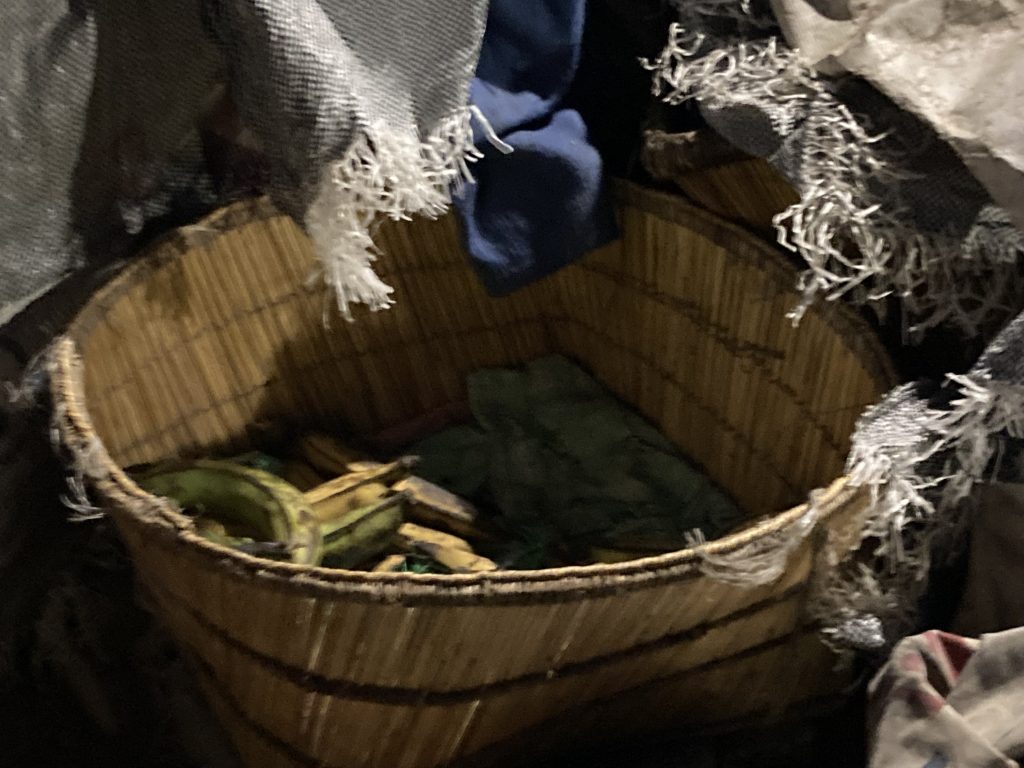
A few minutes away from mama Dorothy, the kaneshie aisles are full of empty plastic bags. Plastic remains a problem for health security. As it is very hot, people used to dring in this kind of plastic bags. Even if it is dangerous.
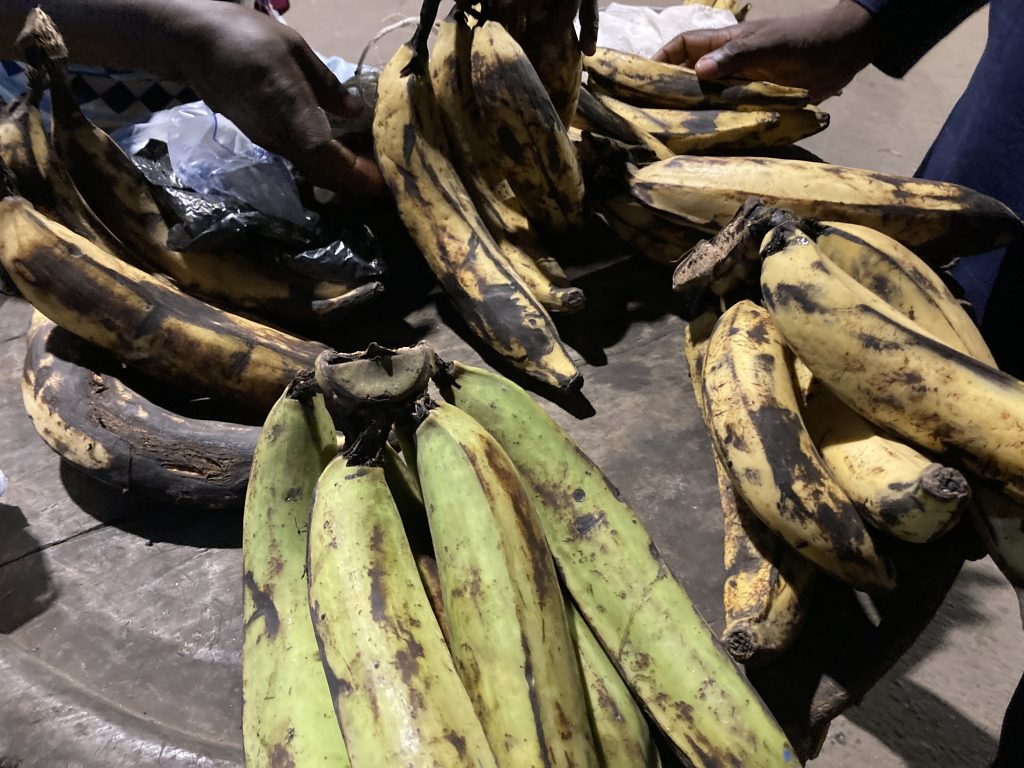
Meeting Yam Celest Association
In these market alleys, a group of women sell yams. Global yam (95%) and cowpea (85%) production were largely attributable to West Africa, and seven of the region’s top 15 agricultural products represented 50% of the continent’s production, according to OECD. While most people are from rural areas, market vendors live in the surrounding suburbs of Accra.
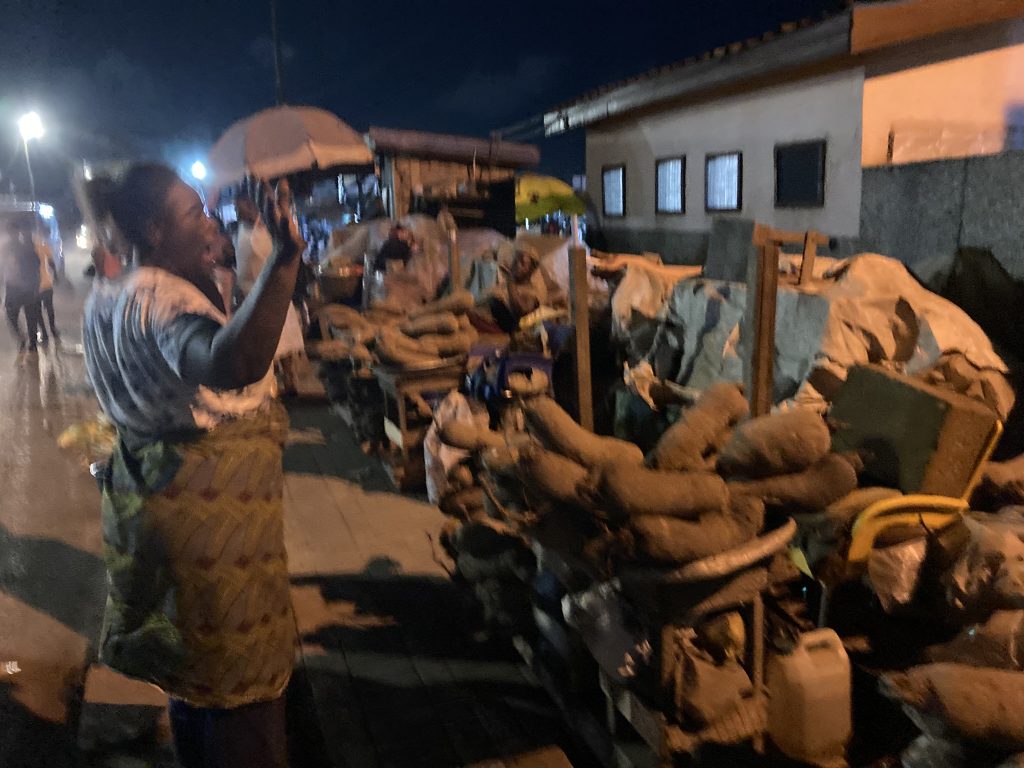
The name of the group of women is Yam Celest Association . Otoo introduces his activities once again. This time, he shows images from his mobile phone, presenting all his crops and transformation of organic waste . The recycling of casava organic waste turns the women attention. Casava is one of the country’s main food resources. The women are impressed. Felicia Appiah, one the women, invites the entrepreneur at her place to recycle her organic waste.
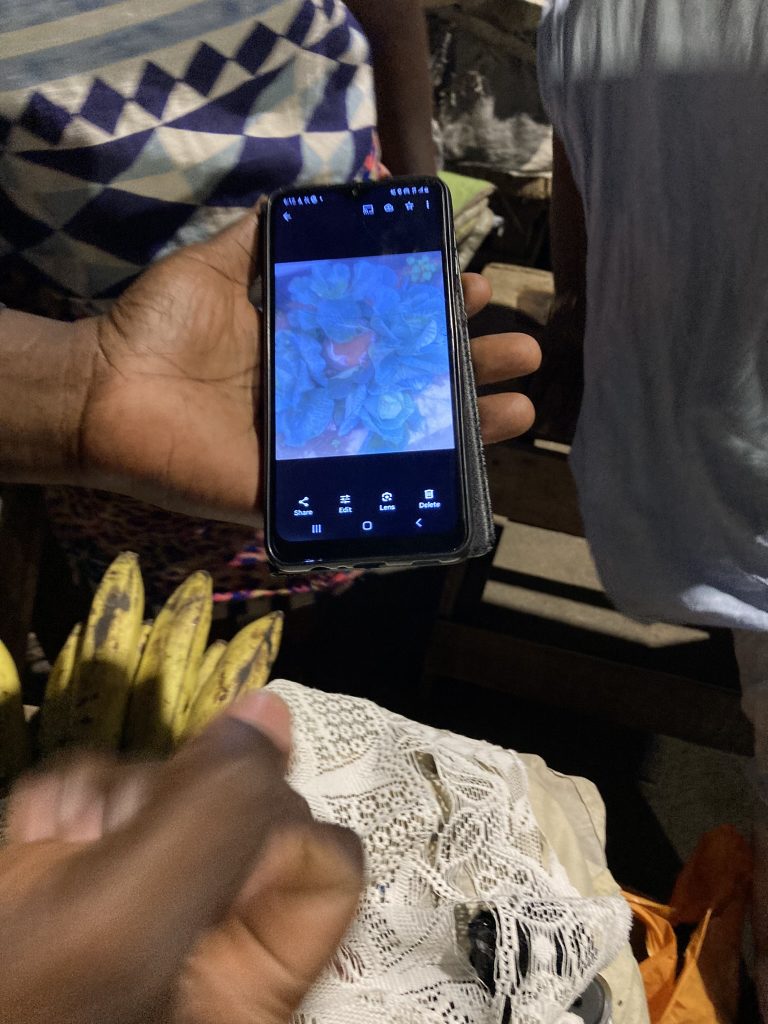
As a reminder, one of the five main priorities of the Accra Climate Action Plan from 2020 to 2025 is to separate organic waste from landfills. There should be no open dumping of organic waste in 2050 in this city of more than 4 million people, according to its climate action plan.

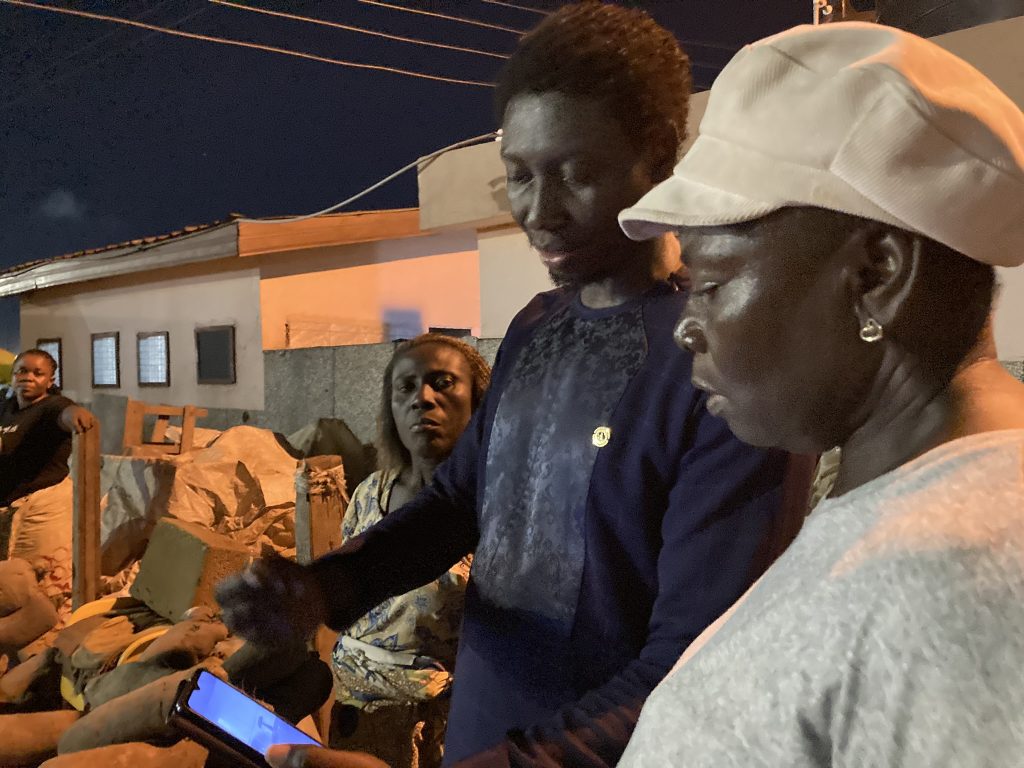
“I have this knowledge, but I do not know if in the next 50 years I will be alive, I prefer to share : if I die now, I will leave all my knowledge, but if I share it with these women, they can even transmit it to their children,”entrusts the entrepreneur.
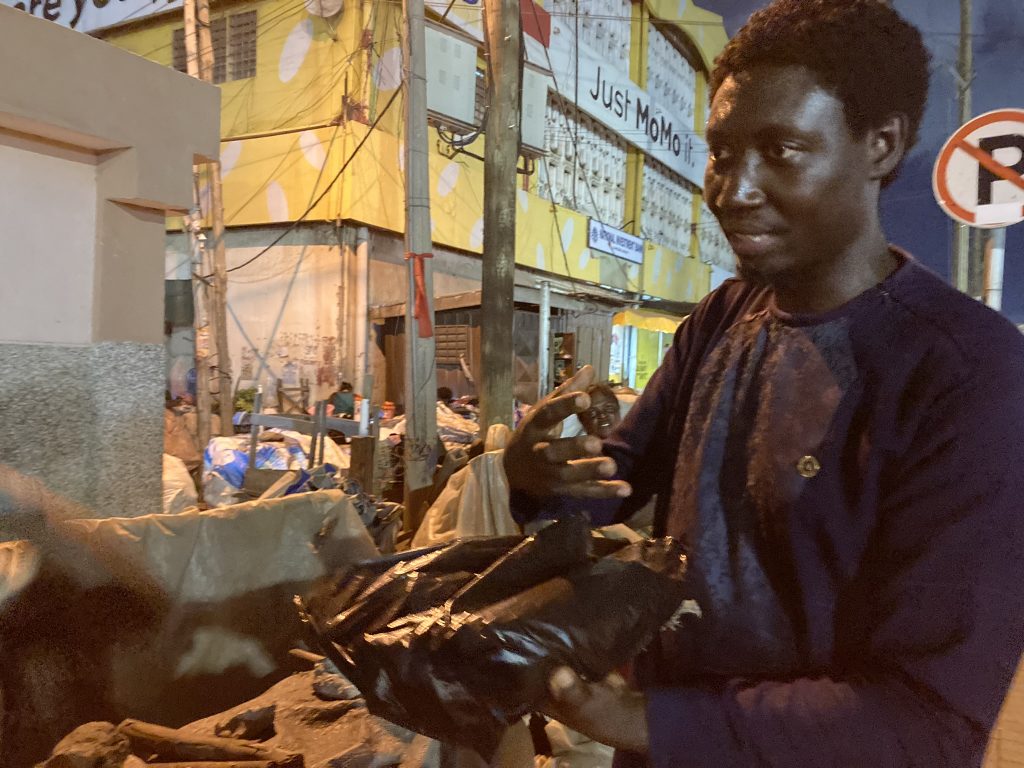
Otoo repeat he likes to solve problems. Today, he has a solar company, gained from his experience in Germany. He also does security systems. He has an interest in biogas and he is looking for opportunities in the carbon market. ” I’m interested in biogas and in carbon market, and I want to partner, but it has to be win-win”, he confesses. He is now in contact with Enoch Kofi Boadu, CEO of DAS Biogas and Construction, another entrepreneur. He was also the dare to share knowledge platform in Accra.
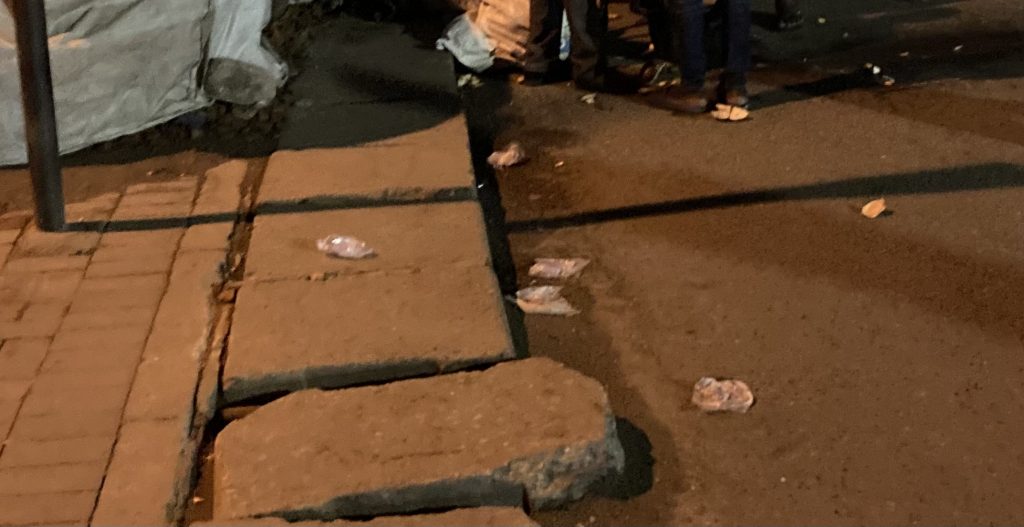
” I look at the value of this transition, renewable energy, waste management, but I do not usually force people, I just introduce myself,” Otoo concluds the Kaneshie market visit.
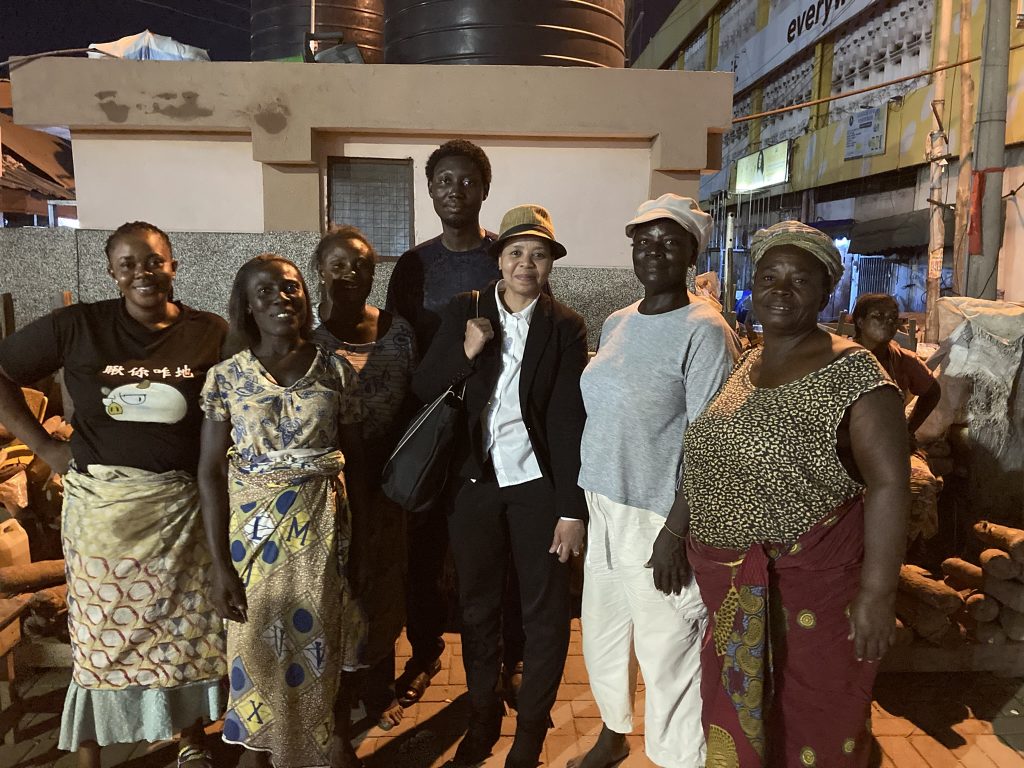
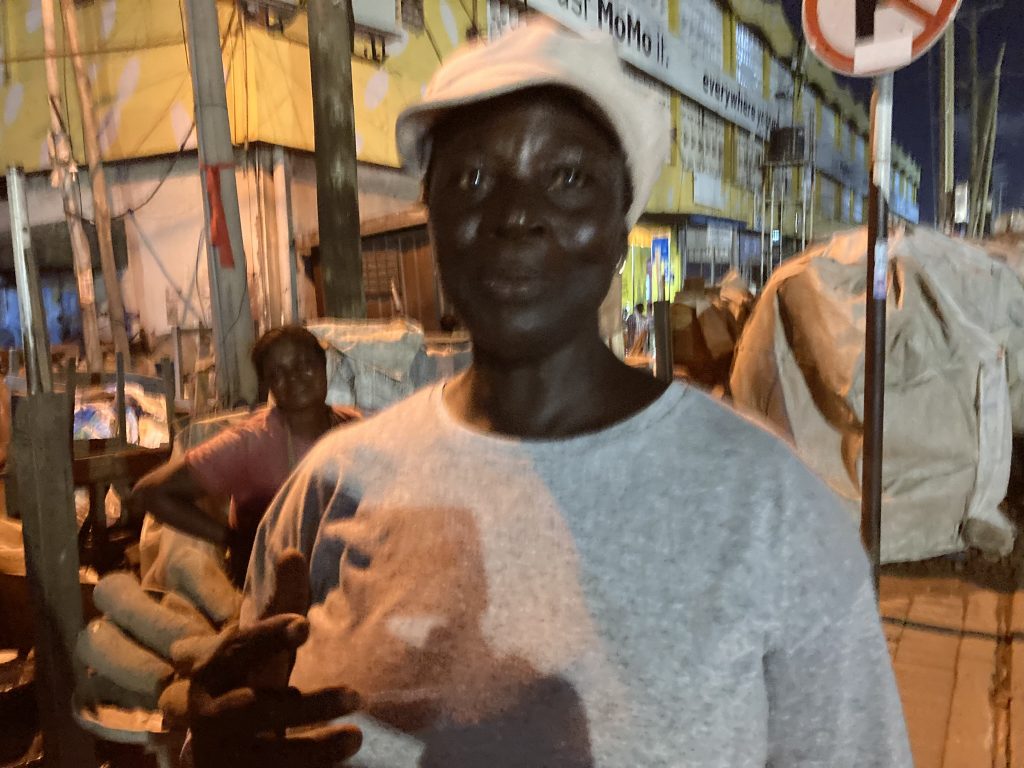

Report made in Accra, Ghana, by Houmi Ahamed
Share this content:
